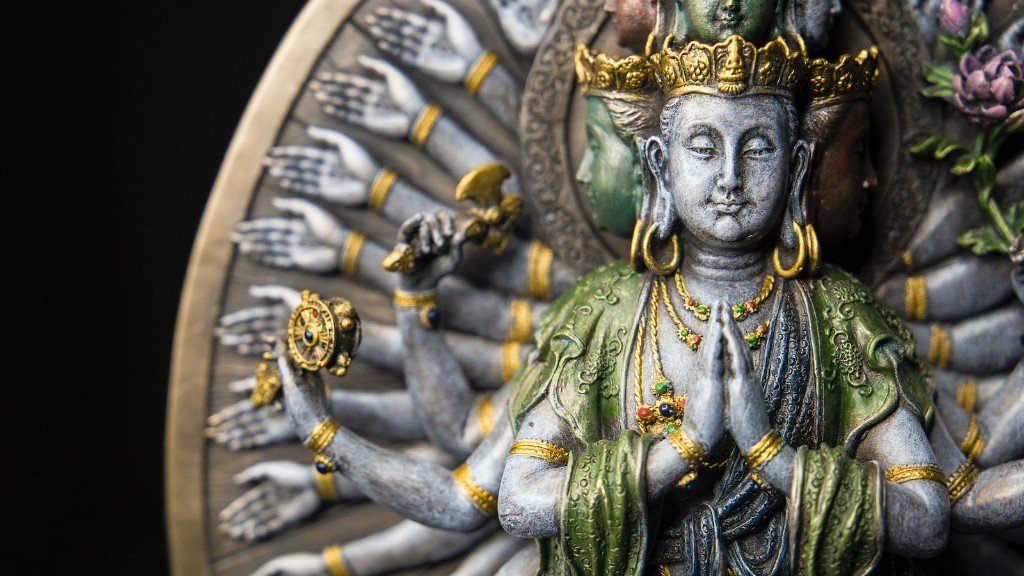How Did The Reformation Affect Christianity
The Reformation was a religious and political upheaval during the 1500s which created the opportunity for new forms of Protestantism to emerge. This development led to profound changes in Christianity and its religious structure, making it one of the most influential movements of the past millennium.
At the heart of the Reformation was a desire to return to the original teachings of Christianity, as set out in the Bible and other ancient sources. This meant rejecting the authority of the Roman Catholic Church, which had assumed increasingly powerful roles in society and imposed its doctrines over those of traditional Christianity. Instead, the reformers sought to break away from this corrupt institution and create their own ‘true’ churches, based on their understanding of the scriptures.
The immediate consequences of this were immense. As the reformers’ reach spread across Europe and beyond, traditional forms of Christianity were either denounced or faded away in favour of the Reformation-inspired versions. The powerful Catholic Church was pushed aside and replaced by new Protestant denominations. In its place emerged Baptist, Lutheran, and Anabaptist churches which prioritised the centrality of scripture and enabled greater access to the word of God for ordinary people.
The effects of the Reformation were far-reaching. It initiated major changes not just to religious practices, but to social and political life as well. With the new churches came new hierarchies and doctrines, as well as ways of interpreting the scripture which challenged previous concepts of law and political legitimacy. Monarchy became increasingly contested and governments began to shift towards more democratic ideals.
The Reformation also had a more sinister consequence: the rise of violence and persecution against those who didn’t share the reformers’ beliefs. Fear of heresy and dissent became widespread, leading to widespread outbreaks of violence and repression against those who dared to challenge the new religious order.
Ultimately, the Reformation changed the face of Christianity. It paved the way for the emergence of Protestant denominations and new forms of worship, and gave rise to fresh principles of political legitimacy. At the same time, it unleashed a wave of conflict and repression which had far-reaching consequences for society. It is for these reasons that the Reformation continues to be studied and discussed by scholars today.
Political and Social Implications of the Reformation
The Reformation had a significant influence on the political and social landscape of Europe. As its teachings spread, so did its ideas about power, legitimacy, and religious liberty. This led to calls for increased democracy, with people questioning the authority of monarchs and officials and demanding more representation in their governments.
The Reformation also saw a shift in social behaviour. No longer did people have to follow the customs dictated by the church. Instead, they could express their own opinions and beliefs, which transformed the way they interacted with each other. Traditional hierarchies were undermined and a new social order emerged which allowed individuals to pursue their own interests.
However, while there were positive aspects to the Reformation, some of its ideas also had negative impacts. It encouraged a more uncompromising attitude towards those who disagreed, leading to religious persecution and violence. In some cases, dissenters were subject to harsh punishments or even death for refusing to conform to the new religion.
In addition, the Reformation led to a heightened sense of religious intolerance. This manifested in various ways, from pressuring people to convert to Protestantism to persecuting those who remained loyal to Catholic teachings. This created a difficult and dangerous environment for those of other beliefs, forcing them to keep their faith hidden or risk reprisals.
Overall, the Reformation had a profound effect on Christianity and the societies it touched. It challenged existing norms and resulted in dramatic changes in religion, politics, and social values.
Impact on Scientific Thought
As the Reformation spread its teachings across Europe, it had a major impact on scientific thought. Although its reformers believed in a literal interpretation of scripture and discouraged too much inquiry into the natural world, some individuals used their newfound freedoms to pursue more unorthodox theories. They conducted experiments, challenged existing ideas, and advanced new hypotheses.
The most prominent example of this was Galileo Galilei, who used mathematics and observation to study the solar system. His work directly contradicted many Church teachings, leading to his persecution and eventual trial by the Inquisition. Yet, although he was convicted and forced to renounce his theories, his work sparked an age of intellectual revolution which laid the foundations for modern science.
The Reformation also allowed for greater theological inquiry and debate. Previously, study of Christianity was highly restricted, with the Church setting parameters for acceptable discourse. But now, people could explore the scriptures to gain a deeper understanding of God and his teachings. This led to fresh creations of Christian thought, complete with new doctrines which would influence Christian practice for centuries.
Overall, the Reformation enabled a more open and critical approach to religious study, allowing individuals to explore new ideas and form their own opinions. This laid the groundwork for the emergence of modern science and created an environment in which intellectual progress could flourish.
Economic Impact
The Reformation also had important economic implications. As more people began following the new Protestant denominations, traditional sources of patronage and taxation began to decline. This hit the Catholic Church particularly hard, prompting it to sell off much of its land and assets to maintain itself.
At the same time, the Reformation prompted a shift in attitudes towards the economy and wealth. Instead of the Church’s traditional emphasis on acquiring worldly possessions, reformers began to advocate for thrift and hard work, in line with their interpretation of scripture. This encouraged more people to pursue commercial endeavours and led to the emergence of a new class of entrepreneurs.
The Reformation also allowed more people to have a say in the economic management of their own communities. Local councils, which had previously been dominated by Church officials, became more open to public input and debate.
Overall, the Reformation had a major impact on the economic life of Europe. It changed the way people viewed wealth and generated new forms of entrepreneurship. It also allowed for a greater degree of civic participation in economic decisions, which had far-reaching implications for the stability of the region.
Conclusion of the Reformation Era
The Reformation was a momentous event which brought about seismic changes to Christianity and wider society. Its impact resonates even today, with its ideas about religious freedom, democracy and economic autonomy having a profound effect on the world.
At the same time, it introduced a wave of conflict and persecution which still has ramifications. The religious intolerance and violence which it unleashed caused deep divisions in society and brought much suffering to those who didn’t conform to the new order.
Overall, the Reformation was a complex and controversial period which continues to shape the world. Its legacy is still felt in the churches, societies and governments of the present day.

